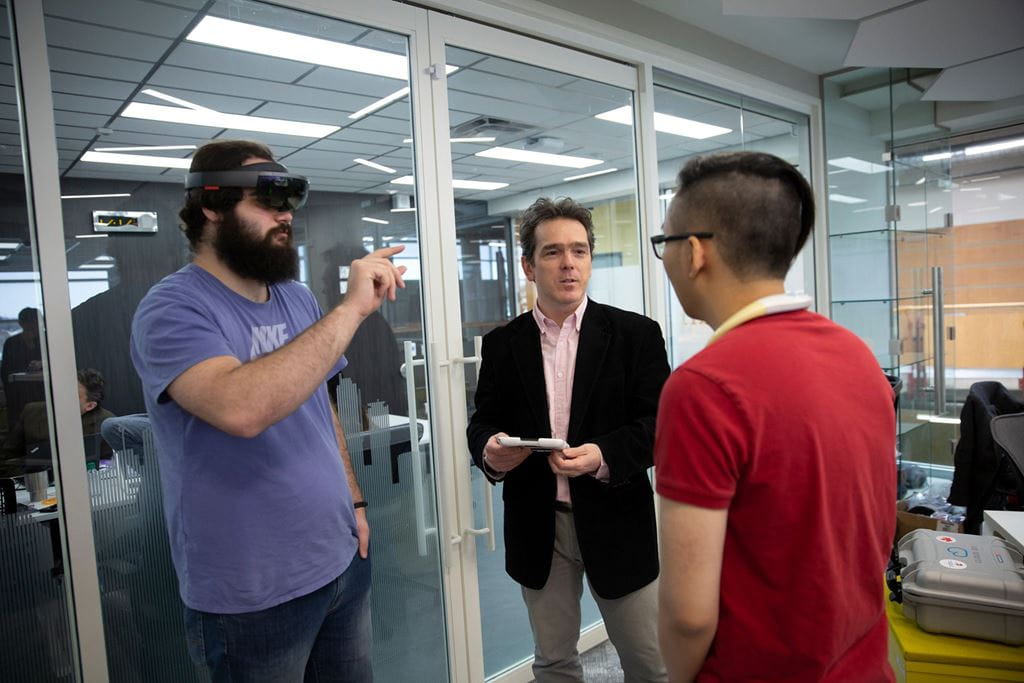
Khaled Mahmud
Biography

Dr. Khaled Mahmud received his PhD in Systems Engineering (Software Defined Radio) from Shizuoka University, Japan in 2000. He holds a Bachelor of Science degree in Electrical and Electronic Engineering from Bangladesh University of Engineering and Technology, and a Master’s of Science degree from Shizuoka University. Dr. Mahmud has a lengthy history in academics and research in the fields of computing, communications and internetworking.
After completing his PhD, Dr. Mahmud joined the National Institute for Information and Communication Technology (NICT) in Japan, where he worked on several national strategic research and development projects, like MIRAI, for future generation wireless systems. He has been engaged in collaborative research projects with world leading companies and institutions, including University of Tokyo, Motorola, Mitsubishi, Hitachi, etc.
Before coming to Canada, Dr. Mahmud was an Assistant Professor in North South University, Bangladesh. He also worked as network planning consultant in several mobile carriers. Before joining Sheridan College, Dr. Mahmud taught at Humber College, Centennial College and the University of Guelph-Humber.
Dr. Mahmud’s research has revolved around communication theory, wireless systems, software defined network (SDN), network security, context-aware systems and ubiquitous networks, cloud computing, and machine learning. Dr. Mahmud has more than 30 international peer-reviewed publications and possesses several international patents on applications of these research topics.
Contributions to research
"Towards Better Insights and Quality Services for Vehicle Autonomy Using Machine Learning" (2022)
Role: Principal Investigator
Contribution: Ongoing collaboration with industry partner, Rogers Communications Inc., to investigate the potential of integrating various non-driving systems of autonomous vehicles with the layers of communication systems available today or on the rapid roll-out, for example 5G networks. The primary approach is the use of machine learning (ML) techniques and cloud-based data storage and processing. The research project explored various approaches of employing machine learning models for object detection using data from LiDAR mounted on a vehicle. The project also explored interfacing with the communication bus used in vehicles for health data and other sensor information. The overall objective of the project is to gain deep understanding on how high-bandwidth and low-latency, but massively multi-user networks like 5G will impact the following applications: a) autonomous public transportation systems, b) driverless taxis, c) autonomous delivery systems, and d) assisted driving for seniors and disabled.
"Machine Learning in Networking: Network Adaptation and Performance Analysis" (2020)
Role: Principal Investigator
Contribution: Collaborated with industry partner Rogers Communications Inc. to investigate the signalling protocols of LTE with an objective of finding and correlating various network IDs that may help to locate a particular user. The project developed software tools that easily navigate, visualize and batch process relevant header field of the captured frames from LTE procedures. The project also explored machine learning models that will be suitable for classifying network traffic and sessions.
"Exploring Implementation Challenges of UCaaS in Opensource Frameworks" (2016)
Role: Co-Investigator
Contribution: Explored opensource TripleO/Openstack framework for industry partner’s (Zip Telecom) unified communication (SIP-PBX) solution. The project developed a testbed and simulation environment testing the performance of private cloud-based SIP servers.
Selected publications
K. Mahmud, K. Galway, E. Sykes, B. Tizard, "A Service Model of Predictive Maintenance for Autonomous and Connected Vehicles Using 5G," accepted for publication in IEEE International Conference on Software Service Engineering, 2023.
